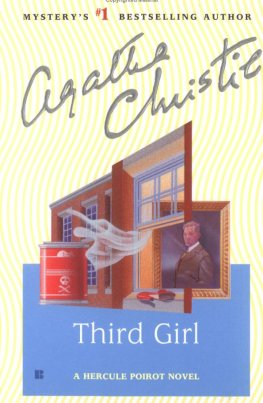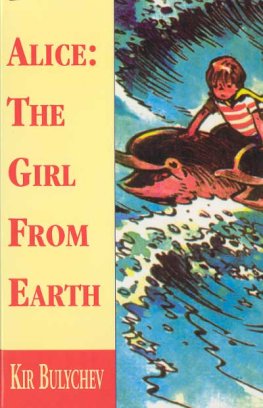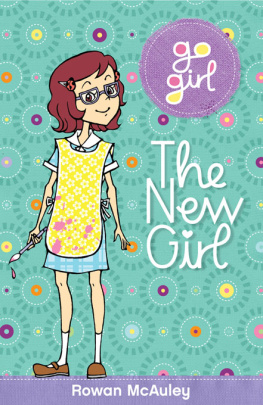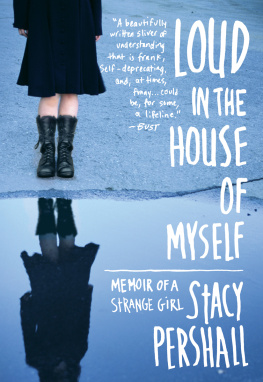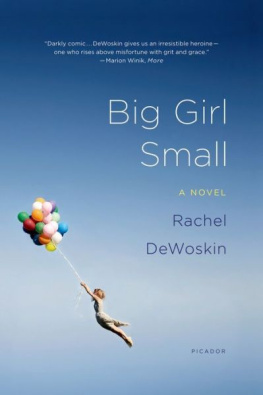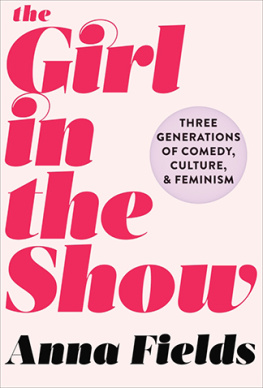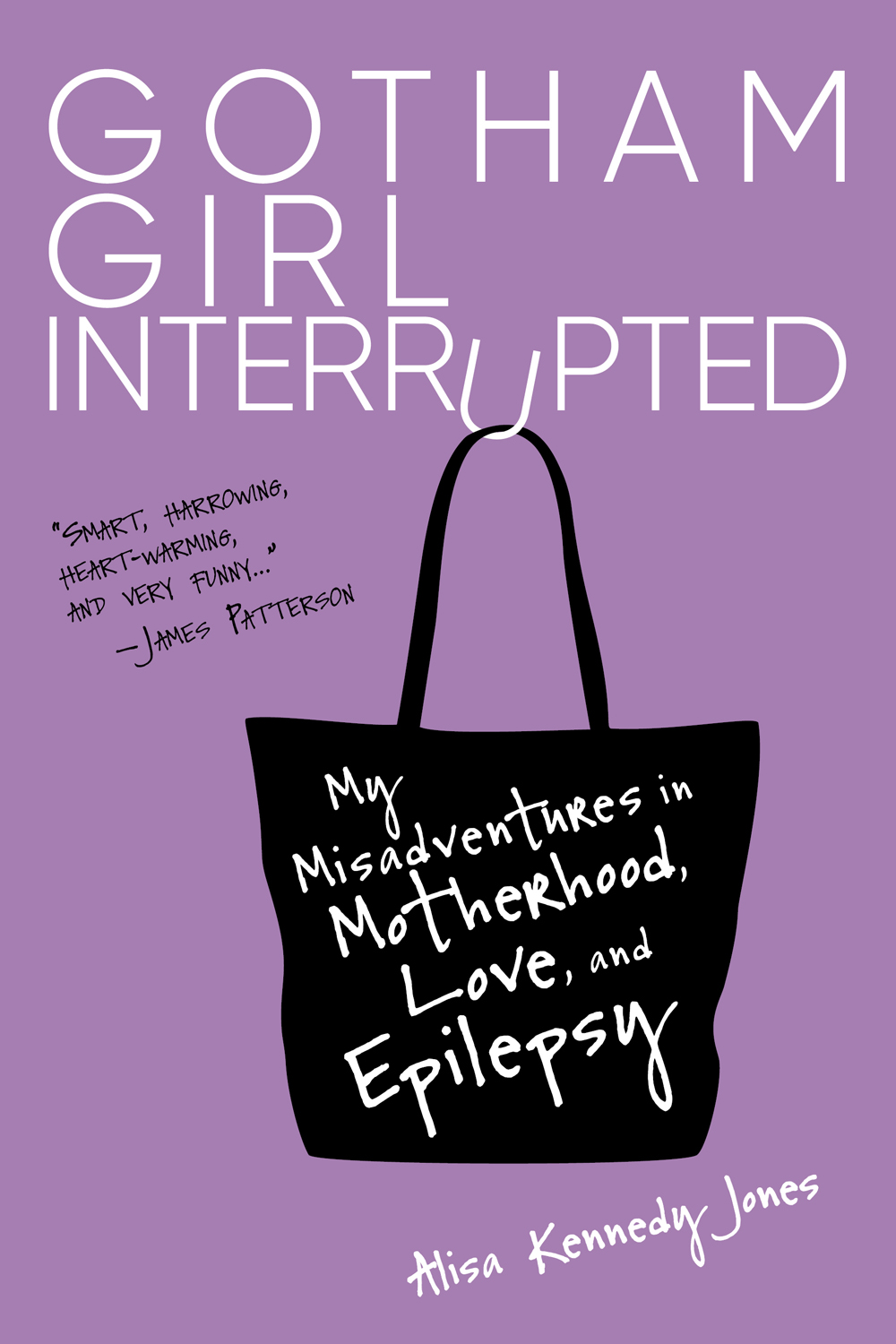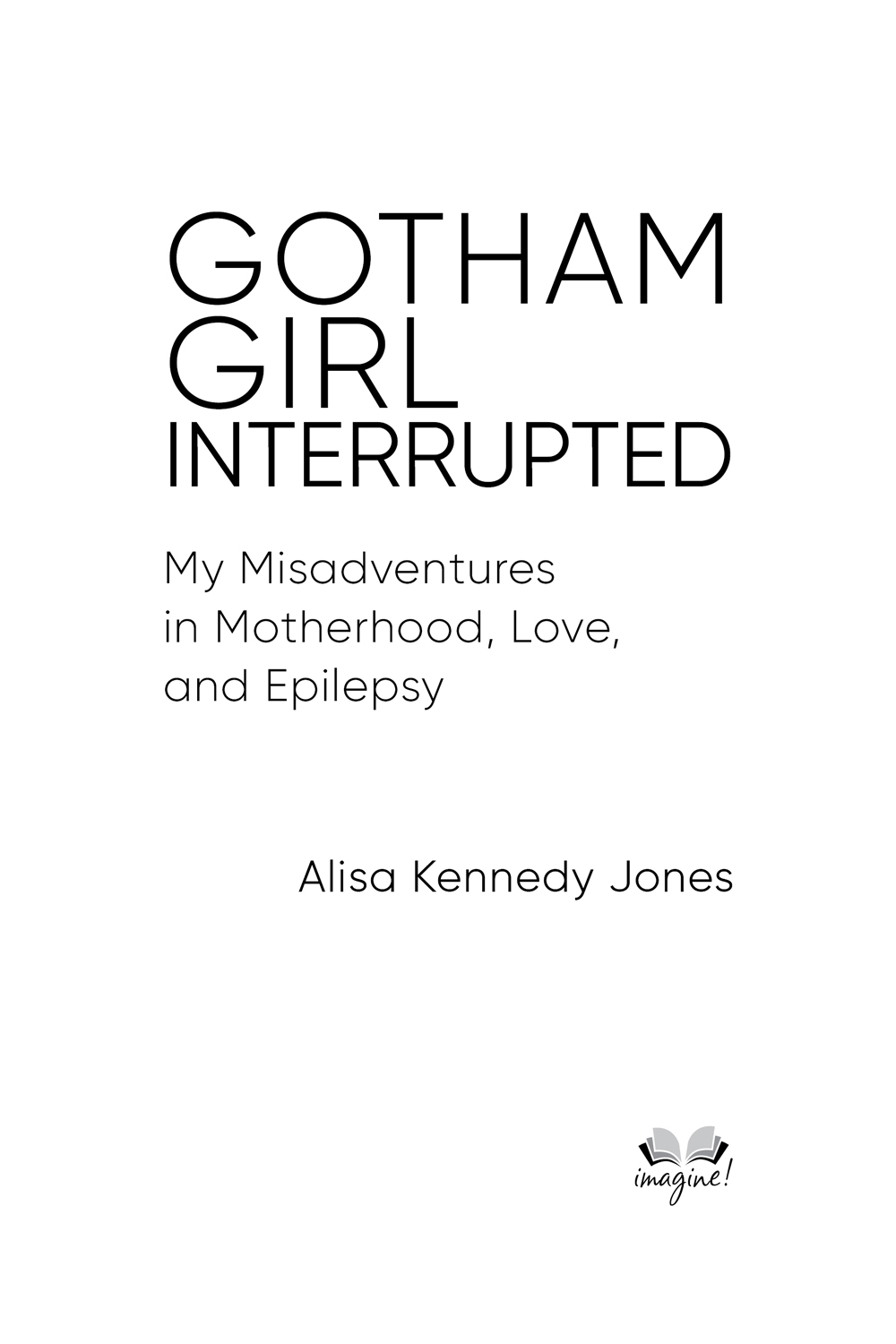All rights reserved, including the right of reproduction in whole or in part in any form. Charlesbridge and colophon are registered trademarks of Charlesbridge Publishing, Inc.
Library of Congress Cataloging-in-Publication Data available upon request.
And discorrupt them, and charge them full with the charge of the soul.
Pull up your socks. Get over it.
And their hairs stand on end to a shimmer of leaves or the movement of clouds, and the way that the tense has been thrown like a switch, where the land turns to dreams.
Introduction
H ELLO FRIEND ! Thank you for picking up this book or for borrowing it from some well-intentioned acquaintance. And thank you, well-intentioned acquaintance, for foisting it upon some unsuspecting reader!
In 2010, at the age of forty, I was diagnosed with a severe form of epilepsy. The cause was a mystery. What is epilepsy, you ask? Simply put, its an overabundance of electricity in the brain. Less simply put, its a serious chronic neurological disorder characterized by sudden, recurrent episodes of sensory disturbance, loss of consciousness, or convulsions, associated with atypical electrical activity levels in the brain. With more than forty different types of seizures, epilepsy affects sixty-five million people worldwide. Because of the complex nature of the brain, epilepsy can strike at any age and manifest differently depending on a variety of factors.
My seizures are the kind most often portrayed in the media, meaning the afflicted person falls to the ground and thrashes around until some brave-hearted Samaritan comes to the rescue. Theyre dramatic. I look totally possessed when my eyes roll back into my head. If Id been born during any other era, Id likely be institutionalized or burnt at the stake by some angry white guys. Over the years, Ive had hundreds of seizures. They tend to involve four phases: the first is the prodromal phase, which means before the fever. This is the emotional or intuitive voice that whispers, Some shits about to go down. The second phase is the aura. Sometimes an aura can be as subtle as a shimmer of light at the edge of my field of vision. Other times, its more hallucinogenic and has me asking, Whoa, what kind of Donnie Darko movie is this? Then, theres the third ictal phasethats the seizure itself, the electrical storm in my brain where Im usually on the ground in convulsions. To those around me, it may look agonizing but Im actually not feeling any pain at this pointjust a gorgeous black bliss. Lastly, comes the post-ictal phase where the convulsions have stopped and Im out cold. In the moments when Im regaining consciousness, I might be confused or frightened, but mostly I can really only focus on whats directly in front of meoften its the smallest things.
Seizures tend to put one in a constant state of disaster preparedness. Picture a pilot fixing an airplane engine while its flying or, in my case, as its crashing. Some of the preparations Ive made over the years might seem ridiculous, but then Ive never claimed to be the most logical girl. Still, epilepsy is about having a plan, a Heres what were going to do and then improvising as things with the condition evolve.
People tend to think of epilepsy as something that primarily impacts children, but it can strike at any time, no matter how healthy you are. As with so many stigmatized chronic conditions, I tried to keep mine under the radar for years for fear that people might misjudge, mock, or withdraw. If I wasnt having seizures all the time, I reasoned, not everyone had to know. Then, in 2015, I had the big one that nearly destroyed me, laid me flat and left me the most vulnerable Ive ever been. It was brutal. It changed almost every aspect of my life, forcing me to start completely over from zeroI couldnt speak, eat, or work. I couldnt go out in public without frightening people. The experience led me to believe that people do need to know more about this condition and that perhaps they also needed a different narrative approach. I know I certainly did.
For years, Ive called myself a spaz. Why? Because when you are a nerdy, too-tall, introverted, single girl-mom with chunky glasses, who has epilepsy, anxiety, and depression, at a certain point you want to take the derogative term back from the historically mean asshats of the worldprimarily people who say epileptics are spastic freaks who are addicts, junkies, drunks, crazy, dangerous, deranged, possessed, demonic, divine, incontinent, unreliable, unable to hold down a job, unable to care for children, and so on.
Whether you have epilepsy or not, chances are you know someone who is affected by it. I happen to think we are all a little neurodiversemeaning we are all uniquely neurologically wired. Where one person is the quintessential extroverted life-of-the-party, another is an introvert completely overwhelmed by people, chatter, and music. Everyone experiences the world according to her/his/their neurological makeup, and we shouldnt have to go around faking normal all the time.
Epilepsy is certainly not all that defines me, but its also a thing thats not going away anytime soon. To go around hiding the fact is not only exhausting; its totally missing out on the richness and hilarity that comes when we are all put together, as people, side by side and forced to understand and deal with difference. And Im with Carrie Fisher on this one; I am constantly perplexed by the stigma attached to mental illness, the various chronic neurological conditions and the differently-abled. If you are walking (or rolling) around New York City or any town with epilepsy, living your life, connecting with people and able to feel compassion for friends, family, and your fellow humans, or to feel even slightly productive in your own right, you deserve a standing ovationnot a kick in the teeth.
We need to stop being such uptight weenies and admit that its high time the world learns to adapt, make room for, and embrace all kinds of people along the spectrum of ability and neurodiversity instead of everyone always tiptoeing around topics of neurology, mental illness, autism, epilepsy, and so many other chronic conditions governed by our brains and genetics.
Over the years, peoples questions about my conditions have ranged from Do seizures hurt? to How come youre not completely developmentally delayed and/or traumatized? More often than not, the questions are more a reflection of the person asking them than anything to do with me. My answers are typically, No, my seizures dont hurt and, Actually, they can be quite beautiful. Indeed, some of the instances when Ive felt most intellectually inspired, most human, and often most creative in my life happen when I fall, thrash around, and then get back up. For me, its like the ultimate system reboota vibrant Technicolor awakening each time. I wont pretend that it isnt a doozy or not complicated, but my family (and Oprah) raised me to believe that my ideas, thoughts, and opinions mattered, that they were grounds for more inquiry, and that its only when we are able to connect the dots between our deepest points of vulnerability and tell our stories that we can change things.


